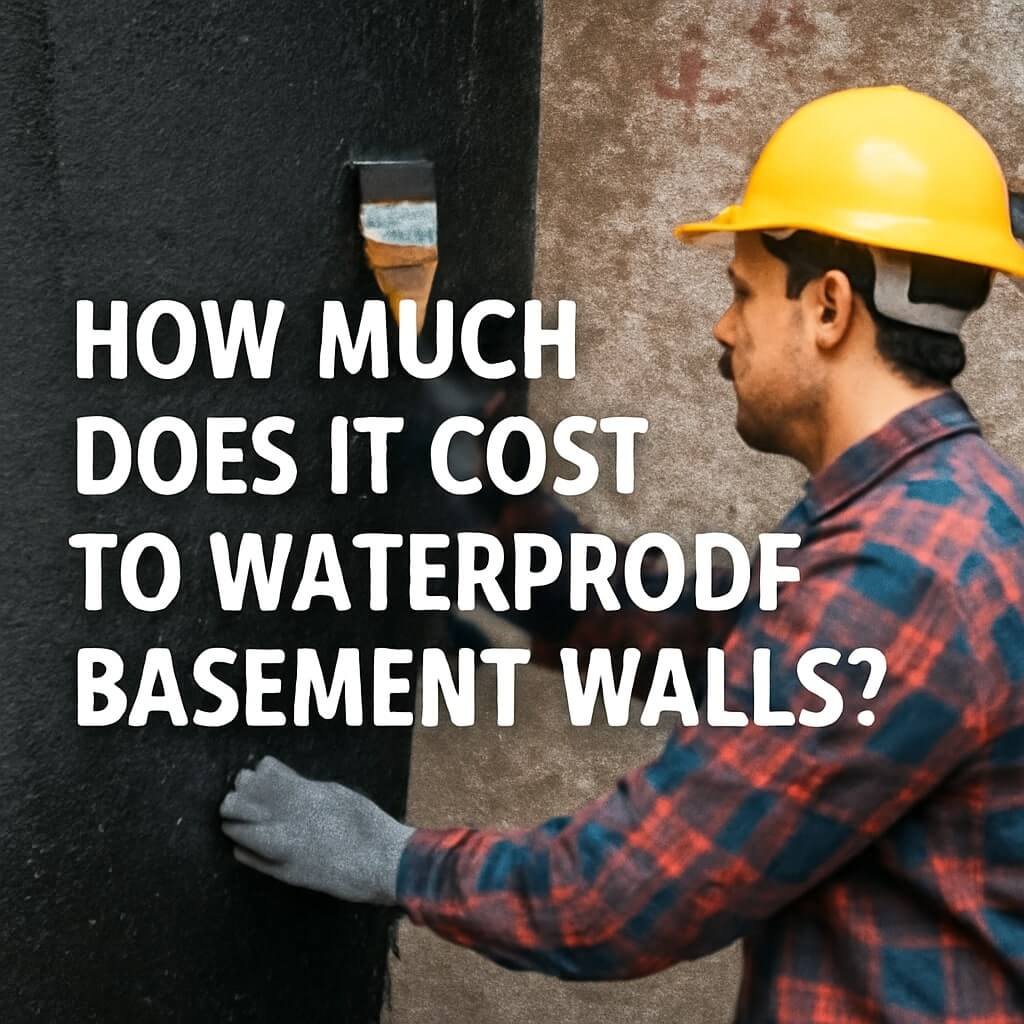Waterproofing basement walls is a critical home maintenance task that can prevent costly water damage, mould growth, and structural issues. But how much does it cost to waterproof basement walls? This comprehensive guide breaks down everything you need to know about basement waterproofing costs, methods, and tips to save money without compromising quality.
Understanding Basement Waterproofing

Before diving into costs, it’s essential to understand what basement waterproofing is and why it matters. Basement waterproofing involves applying protective barriers and drainage systems to prevent water from penetrating the basement walls or floor. This process keeps your basement dry, safe, and usable, especially in areas prone to heavy rain or high groundwater levels.
Why Waterproof Basement Walls?
Water intrusion in basements can cause major headaches, from dampness and unpleasant odours to mould infestations and foundation damage. Waterproofing basement walls helps:
- Protect your home’s structural integrity
- Prevent mold and mildew that threaten health
- Maintain your basement as a livable or storage space
- Increase the property value of your home
Common Basement Waterproofing Methods
There are several effective waterproofing techniques to consider, including:
- Exterior Waterproofing: Excavating around the foundation to apply waterproof membranes and drainage systems.
- Interior Waterproofing: Applying sealants and installing interior drainage channels to control water inside the basement.
- Drainage System Installation: Adding sump pumps and French drains to manage water flow efficiently.
Each method varies in complexity and cost, influencing the overall expense of waterproofing.
Factors Affecting the Cost of Basement Waterproofing
Understanding what impacts the cost will help you budget realistically. Several factors play a key role:
Basement Size and Condition
The larger your basement, the higher the cost due to more materials and labour. Additionally, basements with existing damage, cracks, or uneven surfaces may require extra preparation, raising costs.
Waterproofing Materials
Materials can range from liquid sealants to heavy-duty membranes and drainage pipes. Higher-quality products generally cost more but offer better durability and performance.
Labour and Installation Costs
Labour is a significant part of the total cost. Skilled professionals charge more, but their expertise ensures the job is done correctly, avoiding costly future repairs.
Geographic Location
Costs vary depending on your location. Urban areas or regions with high demand for waterproofing services typically see higher prices than rural areas.
Detailed Cost Breakdown of Waterproofing Techniques
Here’s a closer look at the typical cost ranges for each method:
Exterior Waterproofing Costs
Exterior waterproofing is thorough but expensive. The process involves excavation, membrane application, and drainage installation.
| Item | Estimated Cost Range |
|---|---|
| Excavation and Labor | $5,000 – $15,000 |
| Waterproof Membranes | $1,000 – $4,000 |
| Drainage System (French drain, etc.) | $1,500 – $5,000 |
| Total | $7,500 – $24,000 |
Interior Waterproofing Costs

Interior methods are less invasive and generally cheaper but may not address all water issues.
| Item | Estimated Cost Range |
|---|---|
| Sealants and Coatings | $500 – $2,500 |
| Interior Drainage Systems | $2,000 – $6,000 |
| Sump Pump Installation | $1,000 – $3,000 |
| Total | $3,500 – $11,500 |
Drainage System Installation
Improving drainage can be part of either interior or exterior waterproofing.
| Drainage System Type | Cost Range |
|---|---|
| French Drain Installation | $2,000 – $7,000 |
| Sump Pump | $1,000 – $3,000 |
DIY vs Professional Waterproofing: Cost Comparison
Taking on basement waterproofing yourself can save money upfront, but there are pros and cons to consider.
When to Hire a Professional
- Extensive water damage or foundation cracks
- Complex drainage system installation
- Lack of waterproofing experience or tools
Potential Risks of DIY Waterproofing
- Ineffective sealing is causing recurring leaks
- Safety risks during excavation or sump pump installation
- Possible code violations and insurance issues
While DIY methods might cost as little as $500 to $1,500, professional work ranges from $5,000 to $20,000 depending on scope.
Tips for Reducing Waterproofing Costs
- Get multiple quotes: Compare professional estimates before hiring.
- Address issues early: Preventing water problems is cheaper than repairing damage.
- Combine services: Bundle waterproofing with foundation repairs for discounts.
- Maintain gutters and drainage: Proper maintenance can reduce the need for major waterproofing.
Frequently Asked Questions (FAQs)
1. How long does basement waterproofing last?
2. Is basement waterproofing worth the cost?
3. Can I waterproof my basement walls myself?
4. How do I know if my basement needs waterproofing?
5. What’s the difference between waterproofing and damp-proofing?
6. Are there eco-friendly waterproofing options?
Conclusion
Waterproofing your basement walls is an investment that protects your home, health, and property value. Costs vary widely based on basement size, waterproofing methods, materials, and location. While DIY options exist, hiring a professional is often the safest and most effective choice. By understanding your options and factors affecting cost, you can make an informed decision and keep your basement dry for years to come.



